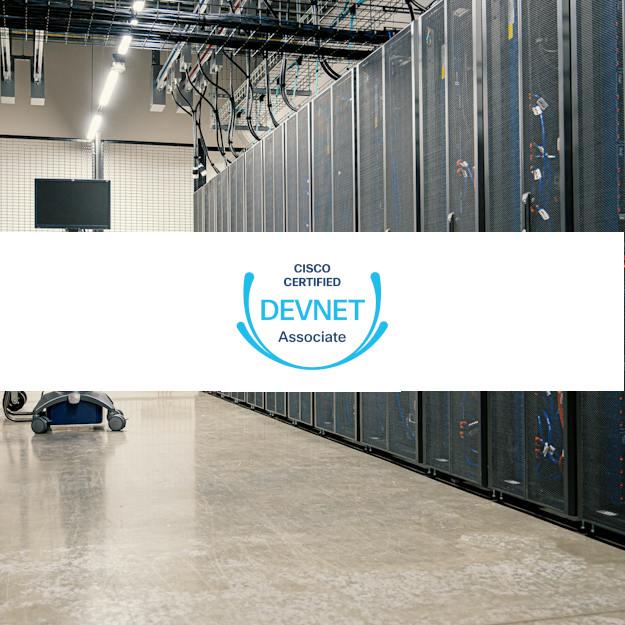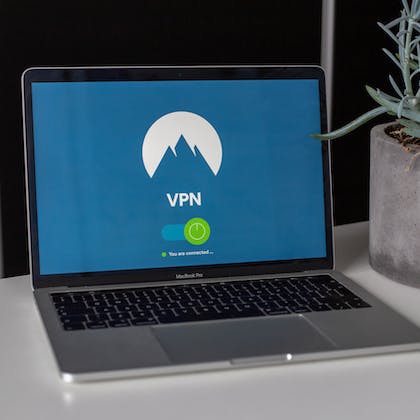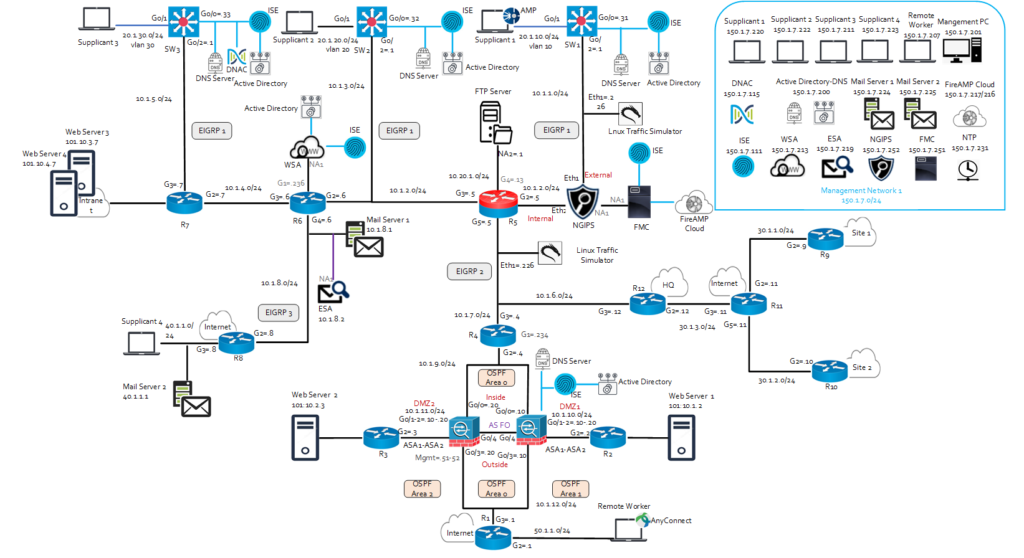

EXPLORE.PERSIST.MASTER.
Cisco Certified DevNet Associate Certification v1.0.
Share :
+971 43346660
Cisco Certified DevNet Associate certification is your entry into a career in network automation. This certification validates your ability to implement basic network applications using Cisco platforms as a base, and to implement automation workflows across network, security, collaboration, and computing infrastructure. With one exam and one training course to prepare, the Cisco Certified DevNet Associate certification gives you the know-how you need and industry recognition that translates into jobs. The DevNet Associate certification validates the skills of software developers, DevOps engineers, automation specialists, and other software professionals. The program certifies key emerging technical skills for a new kind of IT professional, empowering organizations to embrace the potential of applications, automation, and infrastructure for the network, IoT, DevOps, and Cloud.
This course will help you to learn how to implement basic network applications using Cisco platforms as a base, and how to implement automation workflows across network, security, collaboration, and computing infrastructure. The course gives you hands-on experience solving real world problems using Cisco Application Programming Interfaces (APIs) and modern development tools
Target Audience:
This course is designed for anyone who performs or seeks to perform a developer role and has one or more years of hands-on experience developing and maintaining applications that are built on top of network platforms. The course is appropriate for software developers, application developers, and network engineers who want to expand their skill base and validate their skills in programmability, software, and automation.
- Network automation engineer
- Infrastructure architect
- Network designer
- Developer/ Junior Developer
- Test Development Engineer
- Junior software Engineer
- Junior Application Developer
- Junior Automation Engineer/Automation Engineer
- Junior Cloud Developer
- Junior DevOps Engineer
- Jr/Entry-level DevOps Engineer
- Test Development Engineer
Prerequisites:
There are no formal prerequisites for DevNet Associate certification
Ideally, DevNet Associates candidates also have one or more years of experience with software development including Python programming.
- Take advantage of the network when you implement applications to fulfill business needs
- Position yourself for advancement in the NetDevOps world
- Gain a foundation in the essentials of applications, automation, and Cisco platforms
- Certifying your automation skills in developing and maintaining applications built on network platforms
- Link your Cisco DevNet certification badge to all your social media profiles
- Harness the power of DevOps technology in your applications and user experiences
Duration
40 Hours
Skill Level
Beginner
Certificate
Yes
Modules
6
Language
English
Mode
Online/Offline
Key Highlights
- Live Instructor-Led Training (Online & Classroom)
- 40 Hours of Technology Lectures
- Weekdays (Tue - Fri)
- Weekend (Fri-Sat or Sat-Sun)
- SD-Access Lab (DNA center with 9300 series switch)
- Cisco Catalyst SD-WAN Lab (Cisco Viptela Infra)
- Real Equipment and Real World Live Scenarios
- Exam question bank and Preparation
Key Highlights
- 100% Pass Guarantee
- 24/7 Access to the Learning Resources
- Hands-on Lab Practice on physical equipment
- Demand-driven recorded video lectures for references
- Flexible Installment Plans
- Boot Camp Training for a Fast Track Learning
- The Only Center in the UAE with SDN Lab Infra
- Eve-ng Set up on the laptop with images
Course Curriculam
1.1 Compare data formats (XML, JSON, YAML)
1.2 Describe parsing of common data format (XML, JSON, YAML) to Python data structures
1.3 Describe the concepts of test-driven development
1.4 Compare software development methods (agile, lean, waterfall)
1.5 Explain the benefits of organizing code into methods/ functions, classes, and modules
1.6 Identify the advantages of common design patterns (MVC and Observer)
1.7 Explain the advantages of version control
1.8 Utilize common version control operations with Git:
- Clone
- Add/remove
- Commit
- Push / pull
- Branch
- Merge and handling conflicts
- diff
2.1 Construct a REST API request to accomplish a task given API documentation
2.2 Describe common usage patterns related to webhooks
2.3 Identify the constraints when consuming APIs
2.4 Explain common HTTP response codes associated with REST APIs
2.5 Troubleshoot a problem given the HTTP response code, request and API documentation
2.6 Identify the parts of an HTTP response (response code, headers, body)
2.7 Utilize common API authentication mechanisms: basic, custom token, and API keys
2.8 Compare common API styles (REST, RPC, synchronous, and asynchronous)
2.9 Construct a Python script that calls a REST API using the requests librar
3.1 Construct a Python script that uses a Cisco SDK given SDK documentation
3.2 Describe the capabilities of Cisco network management platforms and APIs (Meraki, Cisco DNA Center, ACI, Cisco SD-WAN, and NSO)
3.3 Describe the capabilities of Cisco compute management platforms and APIs (UCS Manager, UCS Director, and Intersight)
3.4 Describe the capabilities of Cisco collaboration platforms and APIs (Webex Teams, Webex devices, Cisco Unified Communication Manager including AXL and UDS interfaces, and Finesse)
3.5 Describe the capabilities of Cisco security platforms and APIs (Firepower, Umbrella, AMP, ISE, and ThreatGrid)
3.6 Describe the device level APIs and dynamic interfaces for IOS XE and NX-OS
3.7 Identify the appropriate DevNet resource for a given scenario (Sandbox, Code Exchange, support, forums, Learning Labs, and API documentation)
3.8 Apply concepts of model driven programmability (YANG, RESTCONF, and NETCONF) in a Cisco environment
3.9 Construct code to perform a specific operation based on a set of requirements and given API reference documentation such as these:
3.9.a Obtain a list of network devices by using Meraki, Cisco DNA Center, ACI, Cisco SD-WAN, or NSO
3.9.b Manage spaces, participants, and messages in Webex Teams
3.9.c Obtain a list of clients / hosts seen on a network using Meraki or Cisco DNA Center
4.1 Describe benefits of edge computing
4.2 Identify attributes of different application deployment models (private cloud, public cloud, hybrid cloud, and edge)
4.3 Identify the attributes of these application deployment types
- Virtual machines
- Bare metal
- Containers
4.4 Describe components for a CI/CD pipeline in application deployments
4.5 Construct a Python unit test
4.6 Interpret contents of a Dockerfile
4.7 Utilize Docker images in local developer environment
4.8 Identify application security issues related to secret protection, encryption (storage and transport), and data handling
4.9 Explain how firewall, DNS, load balancers, and reverse proxy in application deployment
4.10 Describe top OWASP threats (such as XSS, SQL injections, and CSRF)
4.11 Utilize Bash commands (file management, directory navigation, and environmental variables)
4.12 Identify the principles of DevOps practices
5.1 Describe the value of model driven programmability for infrastructure automation
5.2 Compare controller-level to device-level management
5.3 Describe the use and roles of network simulation and test tools (such as VIRL and pyATS)
5.4 Describe the components and benefits of CI/CD pipeline in infrastructure automation
5.5 Describe principles of infrastructure as code
5.6 Describe the capabilities of automation tools such as Ansible, Puppet, Chef, and Cisco NSO
5.7 Identify the workflow being automated by a Python script that uses Cisco APIs including ACI, Meraki, Cisco DNA Center, or RESTCONF
5.8 Identify the workflow being automated by an Ansible playbook (management packages, user management related to services, basic service configuration, and start/stop)
5.9 Identify the workflow being automated by a bash script (such as file management, app install, user management, directory navigation)
5.10 Interpret the results of a RESTCONF or NETCONF query
5.11 Interpret basic YANG models
5.12 Interpret a unified diff
5.13 Describe the principles and benefits of a code review process
5.14 Interpret sequence diagram that includes API calls
lab infrastructure.

CCIE enterprise infrastructure v1.1 equipment and software list:


The practical exam tests candidates on solutions that can be configured using the below
Equipment and software versions. Candidates may see more recent software versions
during their attempt but will only be tested on features that are supported in the list below.
Passing the exam requires a depth of understanding difficult to obtain without hands-on
experience. Early in your preparation you should arrange access to equipment and soft-
ware similar to that used on the exam.
Virtual machines
- Cisco Catalyst 8000V Routers with Cisco IOS XE Software Release 17.9
- Cisco IOSv with Cisco IOS Software Release 15.8
- Cisco IOSv-L2 with Cisco IOS Software Release 15.2
- Cisco SD-WAN (vManage, vBond, vSmart, cEdge) Software Release 20.9
- Cisco DNA Center, Release 2.3

Physical Equipment
- Cisco Catalyst 9300 Switches with Cisco IOS XE Software Release 17.9 Other (supporting virtual machines)
- Cisco Identity Services Engine 3.1
- Linux Desktop
Topology


Modes Of Training
We provide various modes of training, each catering to different learning styles, preferences, and needs.You can make your choice of training mode.
- Classroom-Based Training
- One-On-One Training
- Online Training
- Corporate Training
- Fast Track Training
- Private Group Training
- Lab Workshop Training
Instructors

Krishna kumar
Senior Trainer
CCIE R&S, MCSE
He has been in the networking industry for more than 25+ years, with a focus on Automation and Scripting. Krishna, a CCIE Certified instructor has worked in different IT firms and well known with his experiences that could help pursuing students to accomplish their goal. At present, he is delivering training to students in achieving their certifications in Cisco, Microsoft and Automation.
MCSE,RHCE,CCNP,CEH,CSA,CCSE,F5-CTS, AWS & Azure

Babu Varghese
SENIOR CLOUD & SECURITY SPECIALIST




